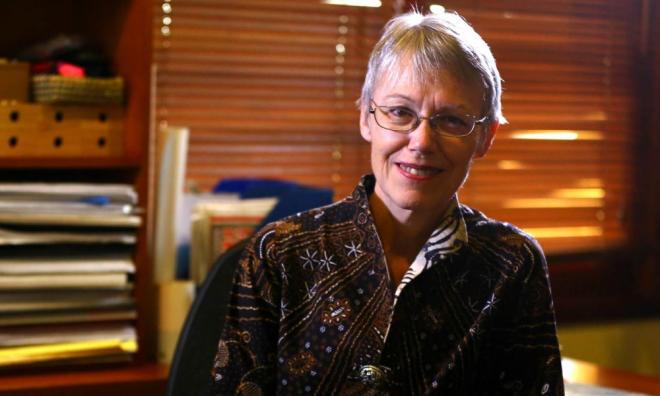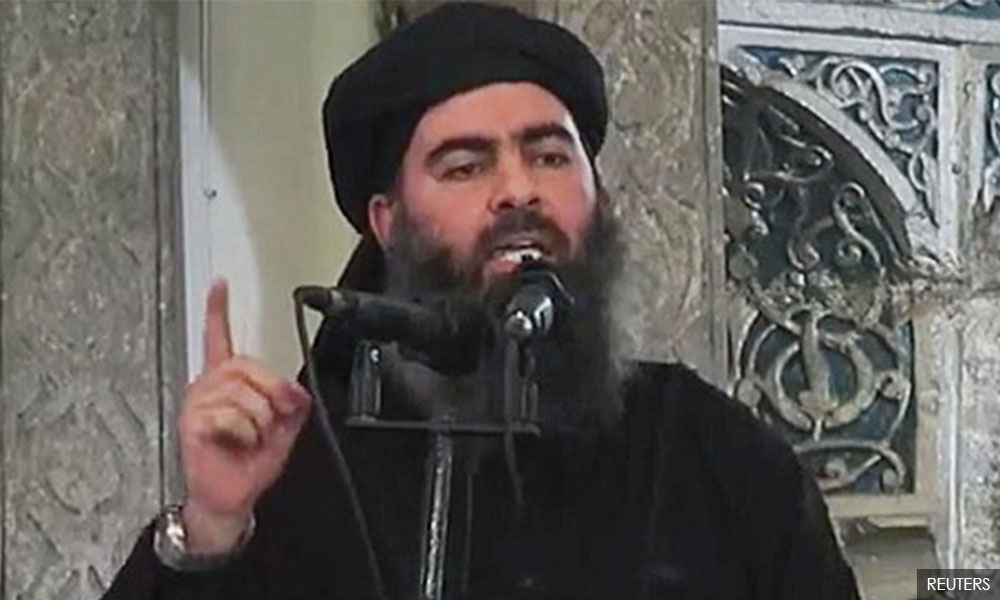
With the death of its leader Abu Bakr al-Baghdadi, it is unlikely the Islamic State (Isis) will look to shift its operations to Southeast Asia as the region is not a priority.
According to Indonesia-based terrorism expert Sidney Jones (above), Southeast Asia “never really mattered very much to the Isis except as proof of its global reach.”
“ I don't believe Isis will shift its operations to Southeast Asia or to its ‘East Asia Province’ (the Philippines).
“[...] the Arabs in Isis have never taken Southeast Asia seriously and discrimination against Southeast Asians has been one of the complaints of some returnees in the region. West Africa, Sinai, N Africa, Afghanistan and Europe are all higher on the Isis priority list,” Jones told Malaysiakini.
This comes after Home Minister Muhyiddin Yassin said Malaysia was not ruling out the possibility of the hardline militant group shifting its base to the region after losing much of its former territory in Syria and Iraq and with Abu Bakr’s death.
Jones, who is Institute for Policy Analysis of Conflict (Ipac) director said there has been little impact on the group’s operations in the region due after the recent death of Abu Bakr during a raid by American forces in Syria last month.

“There's no indication that al-Baghdadi's death has made much difference, one way or the other. Many pro-Isis groups in Indonesia and the Philippines have sworn oaths of allegiance to his successor.”
Instead, he said the focus should be on understanding the spread of Isis ideology within Southeast Asian nations.
“It's more important to understand the local dynamics, who are the local clerics who are spreading Isis ideology? Who is being recruited and how has recruitment changed over the last year and a half?
“What kind of contact persists between Isis supporters at home and their friends in the camps in Syria or other jihadi theatres? What progress have governments made in repatriating their citizens caught in those camps?” questioned Jones.
On the country of most concern in the region, Jones pointed to the Philippines, citing concern following several cases on suicide bombings there in recent years.
Among the cases he cited were the 2019 church bombing in Jolo and the 2018 bombing of a security checkpoint in Basilan.
“The biggest concern in Southeast Asia was that some fighters would find a safe haven in the southern Philippines, not Malaysia […] but the numbers remain low, it's not as though there's a flood,” she added.
Speaking in Thailand, Muhyiddin had yesterday said Malaysian authorities were vigilant following Abu Bakr’s death.

“There are also growing threats from returning foreign terrorist fighters, online radicalisation and lone-wolf attacks,” he said.
It was reported last month that Malaysian police were working to bring home up to 40 Malaysians in Syria who had been detained for alleged terrorist-linked activities there.
Bukit Aman Special Branch's Counter-Terrorism Division chief Ayob Khan Mydin Pitchay said last month that those harbouring extremist ideologies but remained in their home countries were more dangerous than those travelling to Syria to fight for Isis.
He said this was because those who failed to join the jihad (holy war) in Syria could choose to carry out their plans on home soil.
Ayob assured that police would be able to monitor the 40 individuals.
Over the past six years, it was reported that Malaysian police had foiled 25 attempts by Isis to carry out attacks in Malaysia and arrested 512 suspects for Isis-linked activities.
In addition, over 280 Jemaah Islamiyah (JI) suspects detained from 2001 to 2012 have been successfully rehabilitated. - Mkini
No comments:
Post a Comment
Note: Only a member of this blog may post a comment.